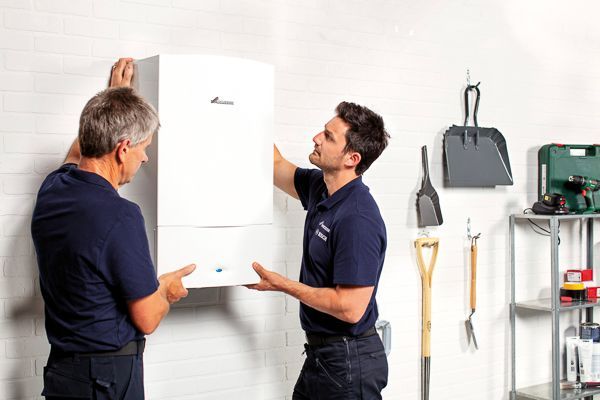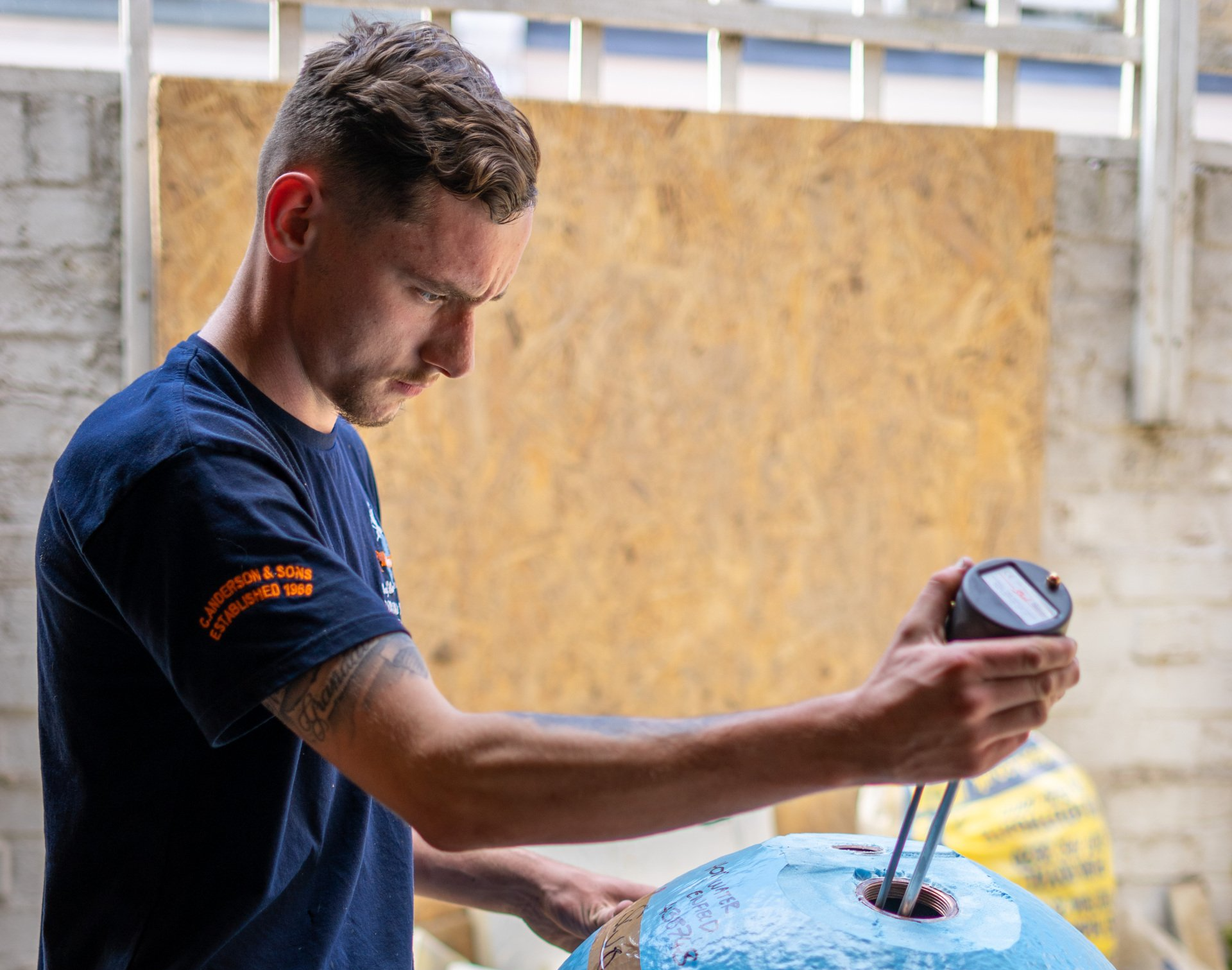How to Choose the Right Boiler for Your London Home
A Complete Guide to Combi, System, Conventional & Electric Boilers for London Properties
Choosing the right boiler for your home is essential for comfort, efficiency, and cost savings. With so many options available, it can be challenging to know which one is best suited for your London home.
London presents unique challenges and opportunities from its diverse range of property types to the need for energy efficiency in a densely populated urban area.
This guide will compare different types of boilers and their suitability for various London properties, considering factors like space, budget, and energy efficiency.
Types of Boilers and Their Benefits
Combi Boilers
A combi boiler is a single unit that provides both heating and hot water on demand, without the need for a separate hot water cylinder.
Advantages:
Space-saving: Ideal for small London homes or flats with limited space.
Instant hot water: Provides hot water directly from the mains, so you don’t have to wait for a tank to heat up.
Energy-efficient: According to the Energy Savings Trust you can save up to £240 annually by replacing older style boilers with a combi.
Disadvantages:
Limited hot water supply: Combi boilers may struggle to deliver enough hot water if multiple taps or showers are being used at the same time, which can be a challenge in shared houses.
Dependence on water pressure: Combi boilers rely on the mains water pressure, which can be an issue in certain areas of London, particularly as Thames Water has gradually reduced pressure levels over the years. Additionally, for every 10 metres you go up in a building, you lose 1 bar of pressure, making it a potential problem for properties located on higher floors.
Suitability:
Best for small to medium-sized homes and flats in London, where space is at a premium.
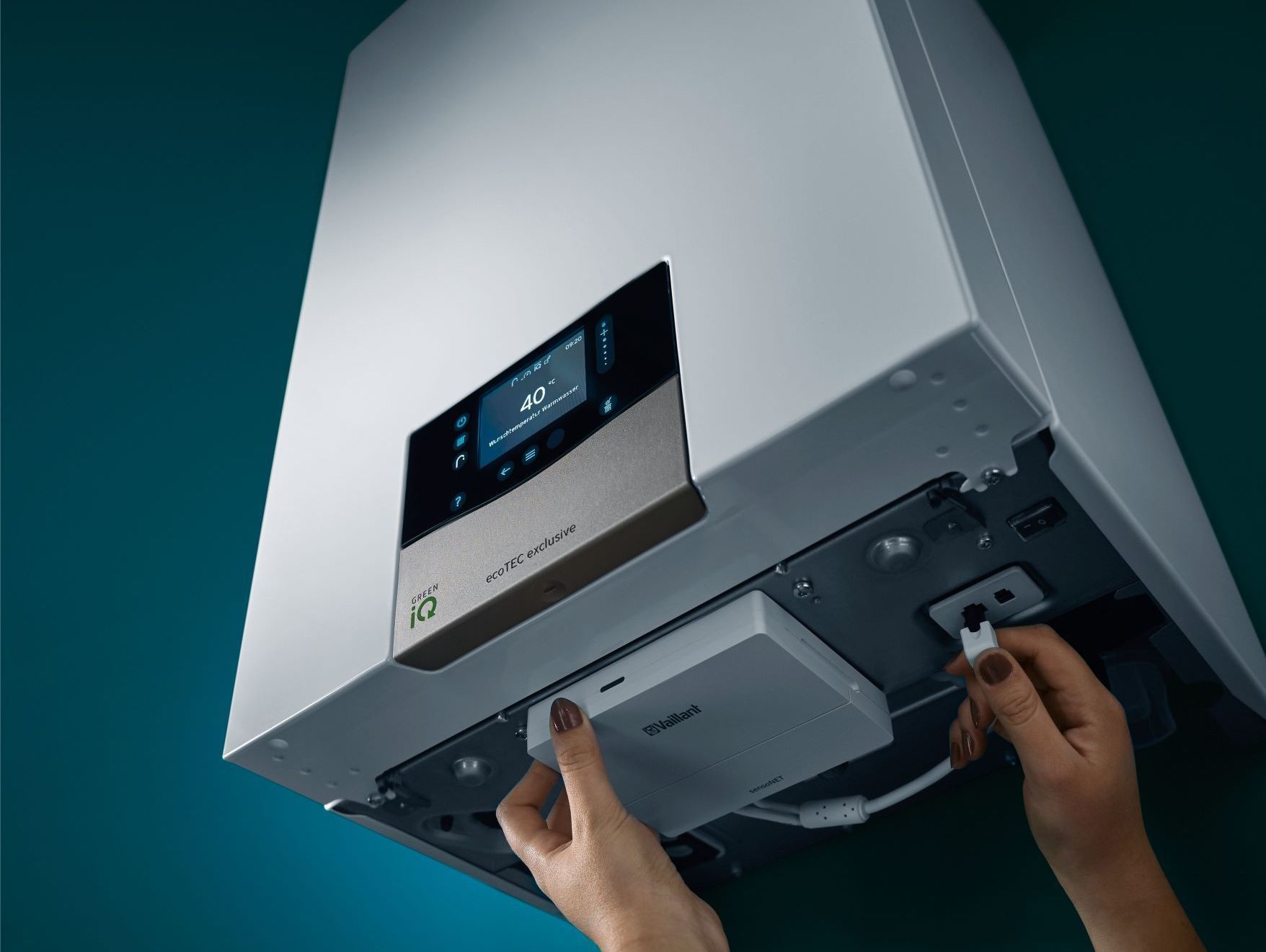
System Boilers
A system boiler heats your central heating system and produces hot water for a storage cylinder.
Advantages:
High hot water demand: Can supply hot water to multiple outlets simultaneously.
Solar compatibility: Works well with solar heating systems, making it a greener option.
High hot water capacity: Paired with an unvented cylinder, system boilers offer ample hot water but still rely on mains pressure supply in London, from Thames Water. Accumulators or specialised pumps may be needed to boost pressure and water flow.
Warranty: Companies like Gledhill offer 25 year warranties on their unvented cylinders Unvented cylinders therefore reliability is a factor to consider
Disadvantages:
Space requirements: A separate hot water cylinder is needed which requires more space than a combi boiler. Typically, the cylinder needs 1-2 square meters plus space to wall mount the boiler.
Suitability:
Suitable for larger homes and properties with multiple occupants/bathrooms, where hot water demand is high.
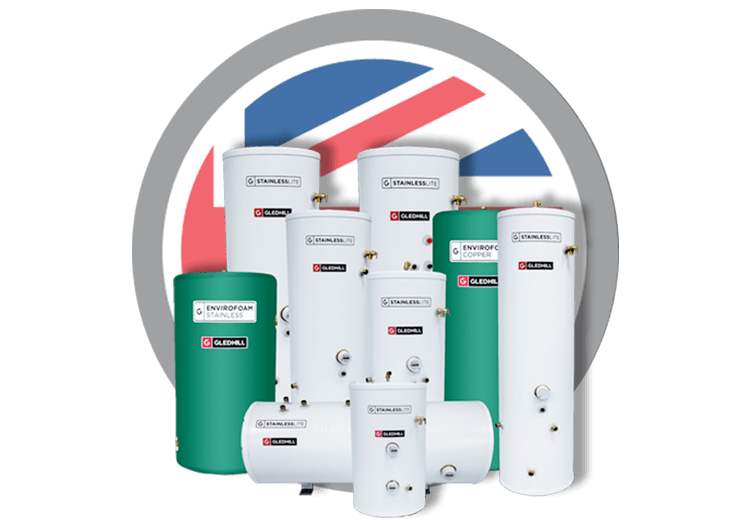
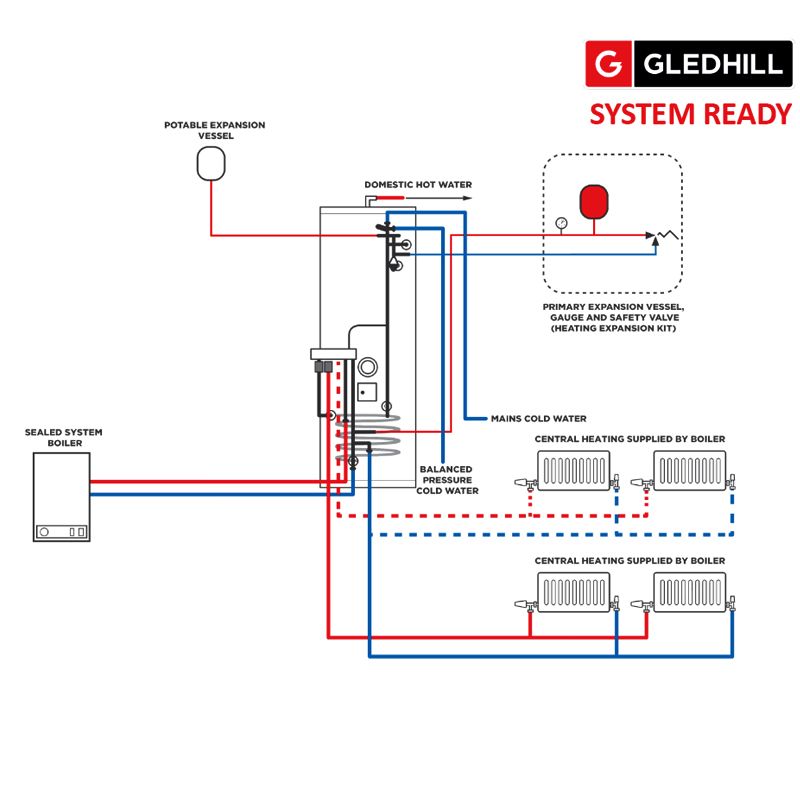
Conventional Boilers
A conventional boiler uses a storage tank and a hot water cylinder to provide heating and hot water.
Advantages:
Multiple taps: Can supply hot water to several taps at the same time without a drop in pressure.
Reliability: Especially suited to homes with old radiator systems that might not cope well with the higher pressure of a combi or system boiler.
Boosted water pressure: Conventional boilers can be fitted with pumps to increase both hot and cold water pressure, making them ideal for larger homes where stronger water flow is needed.
Disadvantages:
Space requirements: Requires both a hot water cylinder and a cold water storage tank, taking up considerable space.
High cost of pumps: While pumps can solve pressure issues, they can be expensive to install and maintain, adding to the overall cost compared to simpler systems like combi boilers.
Suitability:
Ideal for older homes with existing traditional heating systems and where space is not a constraint.

Electric Boilers
An electric boiler uses electricity to heat water for your central heating and hot water needs.
Advantages:
Easy installation: No flue or gas supply is required, simplifying installation.
Environmentally friendly: Zero emissions at the point of use.
Disadvantages:
Running costs: Typically higher running costs compared to gas boilers.
Suitability:
Best for homes without a gas supply or where gas is not an option, such as in some flats or eco-friendly buildings.
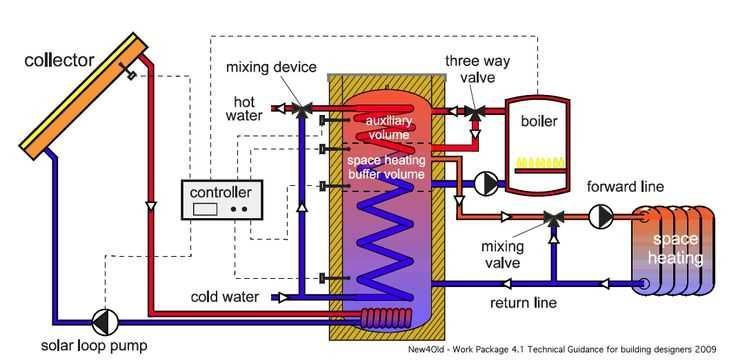
Key Factors When Choosing a Boiler
Space Requirements
When selecting a boiler, it's important to consider the amount of space available in your home or property. Different boiler types require varying amounts of space, especially if a hot water cylinder is needed:
- Combi Boilers: Require 0.5 to 1 square metre (no cylinder needed)
- Electric Boilers: Require 0.5 to 1 square metres
- System Boilers: Require 1.5 to 2 square metres (includes space for a hot water cylinder)
- Conventional Boilers: Require 2 to 3 square metres (includes space for both a hot water cylinder and a cold water storage tank)
If you're considering a system or conventional boiler for a typical London property with 2-3 bathrooms, a good guideline is to opt for a 200-litre hot water cylinder. These cylinders typically measure around 1800mm in height and 550mm in width, offering enough capacity to meet the higher hot water demand common in London homes with multiple bathrooms.
Budget
Boilers come with different upfront and running costs, depending on the type. Here’s how they compare:
Upfront Costs (from least to most expensive):
- Electric Boilers: Cheapest option upfront but less reliable and shorter lifespan than gas boilers.
- Combi Boilers
- System Boilers
- Conventional Boilers
Running Costs (from least to most expensive):
- Combi Boilers
- System Boilers
- Conventional Boilers
- Electric Boilers: Typically more expensive to run due to higher electricity costs.
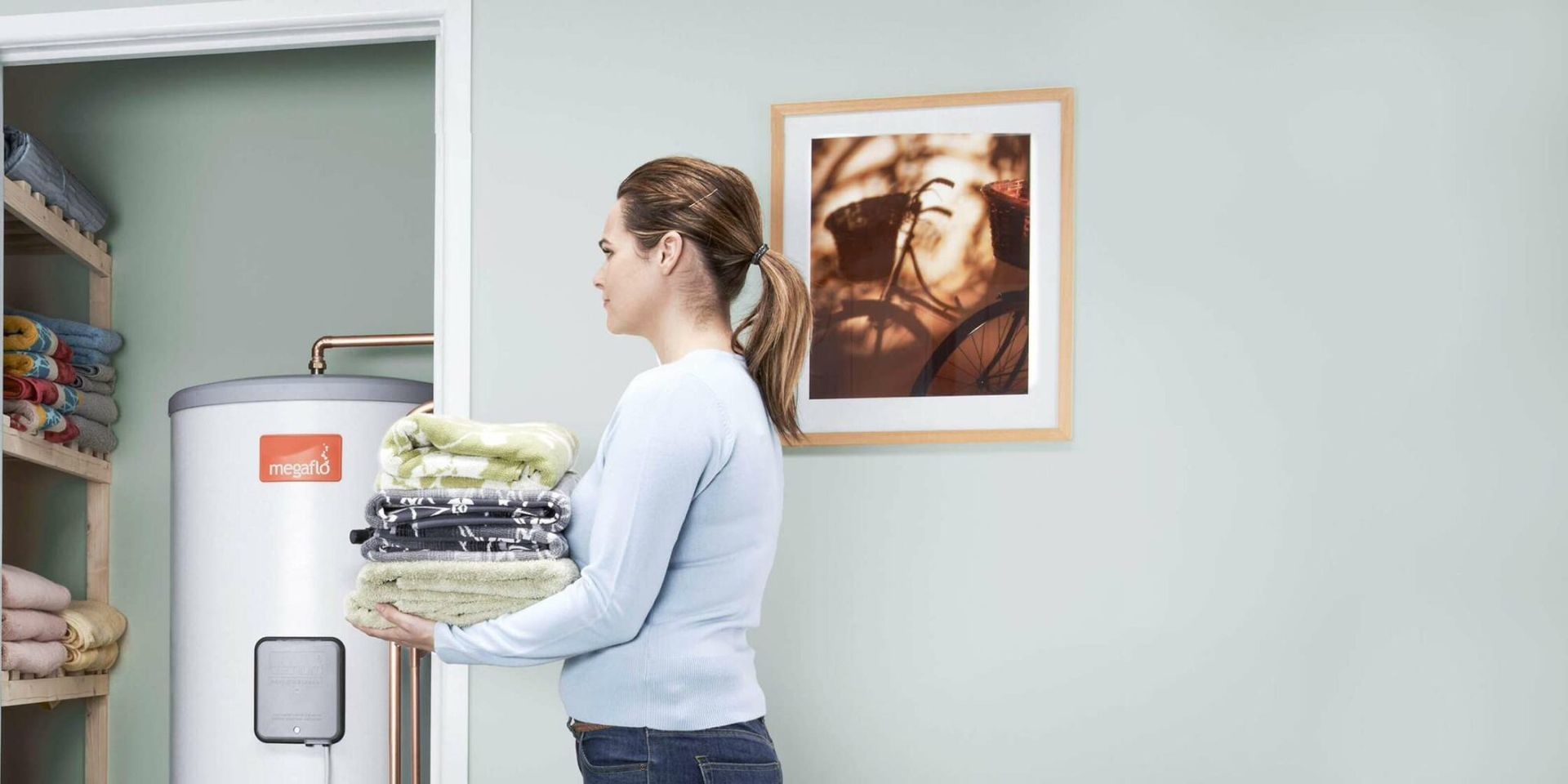
Energy Efficiency
Choosing a more energy-efficient boiler can help you reduce both your heating bills and environmental impact. Always look for models with high efficiency ratings, like A-rated boilers.
Energy Efficiency (from most to least efficient):
- Combi Boilers
- System Boilers
- Electric Boilers
- Conventional Boilers
Household Size and Hot Water Demand
Small Households (1-1.5 bathroom): Combi boilers are suitable for smaller homes with lower hot water demand.
Large Households (2-3+ bathrooms): System or conventional boilers are better for larger homes with higher hot water demand.
Summary - For small households with limited space and lower hot water demand, combi boilers are the most efficient and cost-effective option, needing just 0.5 to 1 square metre. For larger households with higher hot water demand, system boilers or conventional boilers are better, despite requiring more space (1.5 to 3 square metres) and having higher upfront and running costs.
For more information about about hot water cylinders part of system and conventional boilers read our Beginners Guide to Hot Water Cylinders
Making Your Decision
Assess Your Needs
Use this checklist to help assess your specific needs:
- Available space
- Budget
- Hot water demand
- Energy efficiency preferences
Consult a Professional
It’s crucial to consult with a Gas Safe Registered heating professional or plumber to ensure you choose the right boiler for your home.
Consider Future-proofing
Choose a boiler that can accommodate future needs, such as being compatible with solar heating systems, allowing for potential home expansions, and consider eco-friendly options with high energy efficiency ratings to reduce your environmental impact.
Check out our blog on eco-friendly heat pumps and hydrogen boilers here.
Consider Upgrading Your Traditional Radiator System
If you have an older traditional radiator system, consider upgrading for several benefits:
Improved Efficiency: Modern boilers are more energy-efficient, potentially reducing your heating bills.
Enhanced Comfort: Enjoy more reliable heating and hot water performance.
Space-saving: Upgrade to a compact combi boiler to free up space in your home.
Environmental Impact: Reduce your carbon footprint with a more eco-friendly heating system.
Conclusion
Selecting the right boiler for your London home involves considering various factors, including space, budget, and energy efficiency. By understanding the different types of boilers and their suitability for various homes, you can make an informed decision that ensures comfort and efficiency. Remember to consult with a professional to get tailored advice and the best results for your heating needs.
Additional Resources
Related Articles: Explore more about boiler maintenance, energy efficiency tips, and heating system upgrades on our blog.
Thinking about upgrading your home with a reliable, energy-efficient boiler?
Contact Anderson & Sons today to discuss which boiler solution is best suited for your property. Our expert heating engineers handle all aspects of installation, repair, and maintenance for any boiler system.
For more information about our boiler installation services, click here: Boiler Installation Service
We guarantee all our work and are Vaillant, Worcester Bosch and Gledhill boiler approved installers, backed with 10 year all parts and labour warranties.
Call today on
0207 386 8888 for a free estimate, or via our
booking form here.
You might also like
Our Blog

Book a Service Today
We will get back to you as soon as possible
Please try again later
Anderson & Sons | All Rights Reserved | Read Our Privacy Notice & Cookie Policy

